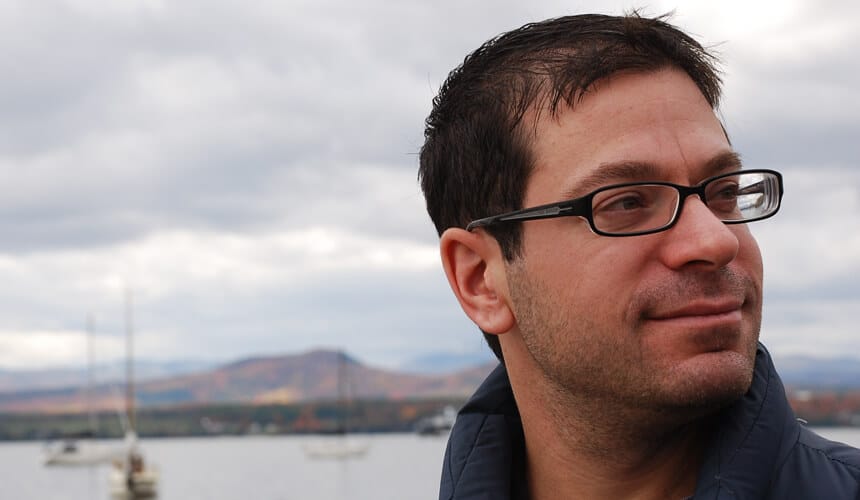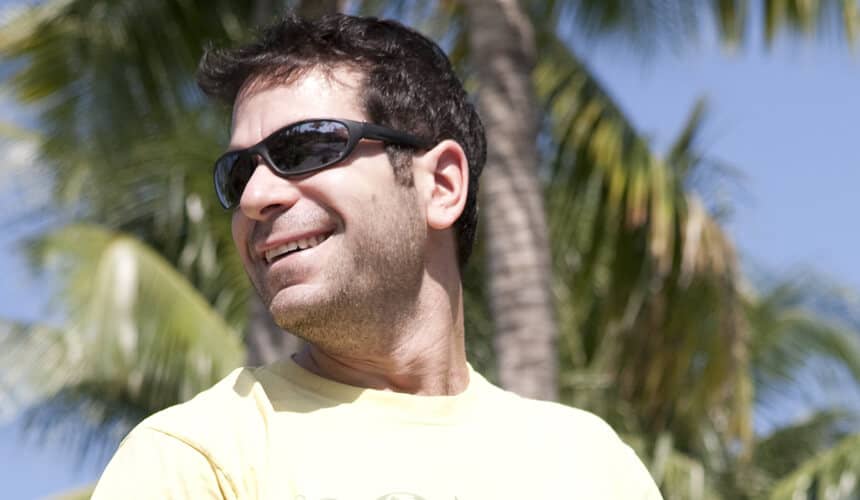Eric Neufeld
Restoring Limbs, Restoring Lives
Eric Neufeld BA1998 began his career in the field of prosthetic engineering at Scheck & Siress, Chicago’s largest provider of orthotics and prosthetics, using his free time to help more than 1,000 disabled people in the developing world as a volunteer.

Photo courtesy of Eric Neufeld.
Starting in 2005, Neufeld raised funds and took vacation time to travel and provide new artificial arms and legs to poor people in Guatemala, Ecuador, Pakistan, Haiti, and the United States. He now works full time with a nonprofit he founded called Range of Motion Project (ROMP). Neufeld and his volunteers have provided more than 3,500 custom-made prosthetic limbs and several thousand more braces. With no office in the United States, ROMP operates efficiently through its full-service prosthetic/orthotic laboratories and gait-training centers in Guatemala and Ecuador, and it serves remote areas throughout Latin America through mobile clinics.
The devices have given mobility back to those who have been injured or suffered from disease. Friend and supporter Gregory Krupa of Eugene, Oregon, tells of one person whose life Neufeld dramatically changed. A Honduran woman named Mirabelle lost her arms in an attack by her husband, so she could no longer care for her children. After dangerous travel to ROMP’s Guatemala clinic, Mirabelle was able to write a thank-you letter with her new high-tech arms and fingers before returning home.
Neufeld says he found his inspiration in a UW anthropology course that featured Margaret Mead, who said, “Never doubt that a small group of thoughtful, committed citizens can change the world; indeed, it’s the only thing that ever has.”
A 2012 Forward under 40 Award honoree and a former resident of a New York City suburb, Neufeld says his years in Madison introduced him to scholars and students from all over the country whose passions and interests intrigued him and spurred his own self-exploration. It led to his quest to help others. ROMP “has allowed me to combine my skills and passion to make a difference,” Neufeld says.
 21° F
21° F
